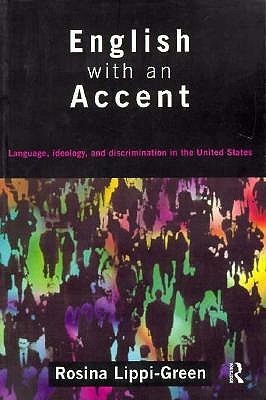What do you think?
Rate this book


286 pages, Paperback
First published April 24, 1997
"What is surprising, even deeply disturbing, is the way that many individuals who consider themselves democratic, even-handed, rational, and free of prejudice, hold on tenaciously to a standard language ideology which attempts to justify restriction of individuality and rejection of the Other" - Lippi-Green (p.73)
"We do not, cannot under laws, ask people to change the color of their skin, their religion, their gender, but we regularly demand of people that they suppress or deny the most effective way they have of situating themselves socially in the world. ie. 'You may have dark skin but you must not sound Black'. 'You can wear a yarmulke if it is important to you as a Jew, but lose the accent'. 'Maybe you come from the Ukraine, but can't you speak real English?' 'If you just didn't sound so corn-pone, people would take you seriously'. 'You're the best salesperson we've got, but must you sound gay on the phone?' "(p.63-64)